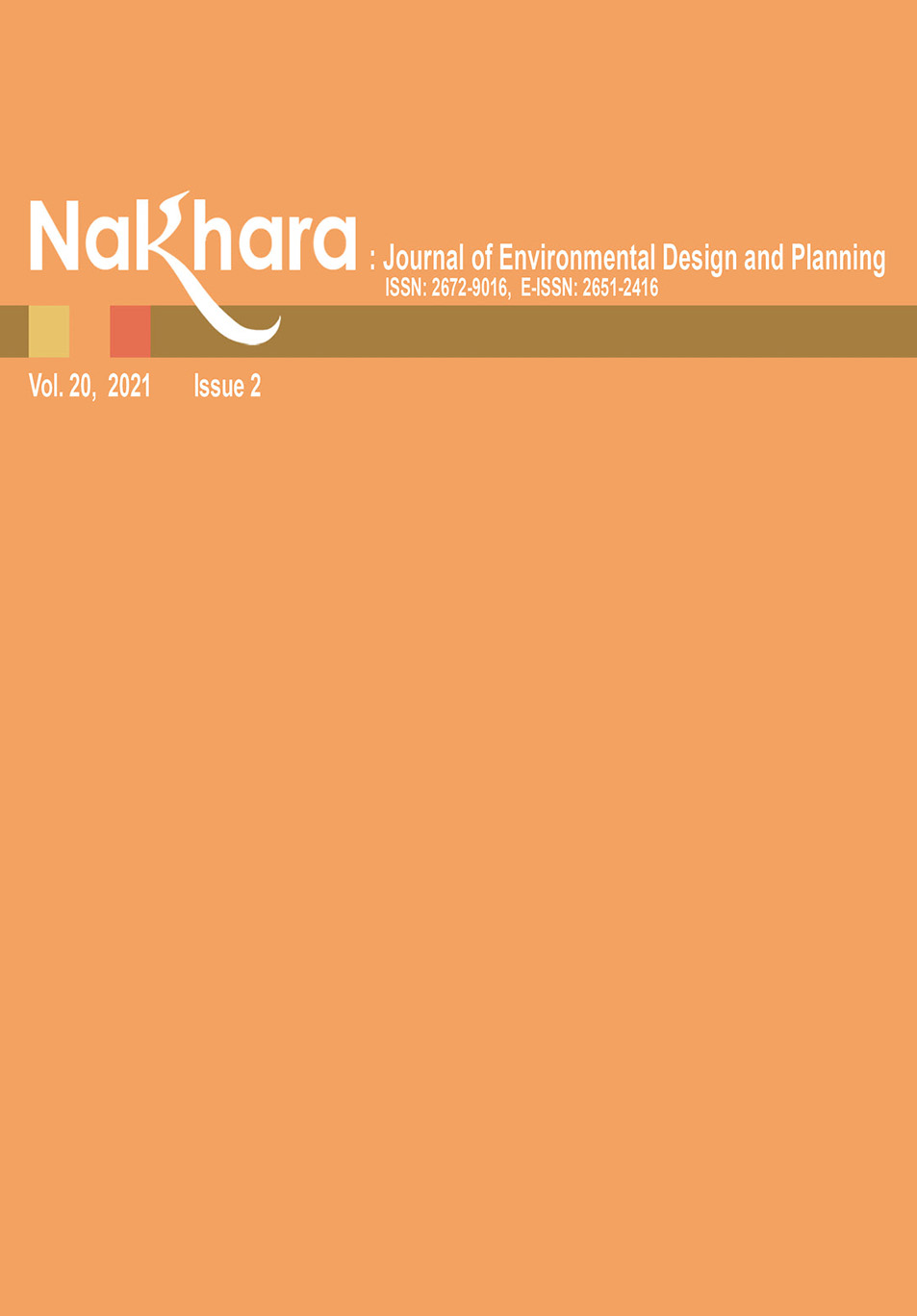Sustainable Engagement with Indigenous Settlements in Prohibited Areas: Case Study of Karen Tribe Villagers in the Kaengkrachan Forest Complex, Thailand
Main Article Content
Abstract
Cultural Housing Network Project under collaboration by The Department of National Park, Pidthong Foundation and Chulalongkorn University has been initiated as a social engagement to solve conflicts between the Department of National Park and Primitive Karen tribe villagers in this prohibited area. Treatment bamboo for multi-utilizing and pre-establishing of village working group for cultural promotion has been raised as the key success factors, in parallel with trial and error activity for natural and cultural tourism. These were engaged to reconstruct the village pride of their local wisdom and widen up the job opportunity for their next generation, under restricted regulation by the Department of National Park and long-term distrustful conflicts between both sides. Chulalongkorn University and Pidthong Foundation, as the academic and NPO sectors, have to retain their neutral stances by following up a consensus roadmap of sustainable engagement plan, to counter measurement with any unexpected emerging pressures from both sides.
Article Details

This work is licensed under a Creative Commons Attribution-NonCommercial-NoDerivatives 4.0 International License.
References
Morton, M. F., & Baird, I. G. (2019). From hHill tribes to Indigenous Peoples: The localisation of a global movement in Thailand. Journal of Southeast Asian Studies, 50(1), 7 – 31.
Ozanne, J. L., & Anderson, L. (2010). Community action research. Journal of Public Policy & Marketing, 29(1), 123-137.
Pathumporn, J., & Nakapaksin, S. (2015). Participatory action research model for sustainable community based tourism development. International Journal of Business and Administrative Studies, 1(3), 89- 93.
Sankote, P., & Kamnuansilpa, P. (2020). Performance of the OTOP Nawatwithi tourism community project, Mahasarakham province. Journal of Graduate MCU Khon Kaen Campus, 7(4), 299-310.
Serirat, S., & Popichit, N. (2014). The development of managerial competency for the achievement of sustainable national park in Thailand. Universal Journal of Industrial and Business Management, 2(7), 188-192.
Sthapitanonda, P. (2018). ‘Pid Thong Lang Phra’ - The impact of culture upon Thai CSR concepts and practice: A study of relationships between NGOs and corporations. Asia Pacific Public Relations Journal, 16(1), 61-72.
Sukkasame, S. (2019). Collaborative community design processes in rural and urban settlements in Thailand. Nakhara: Journal of Environmental Design and Planning, 17, 71-80.
Tachakitkachorn, T. (2018). Prototype of long-life treatment bamboo for adaptive vernacular Karen tribe house in Pongluek-Bangkloy Kaengkrachan Petchaburi. ASA Journal issue 02, 2018, 100-107.
Tachakitkachorn, T., & Suwannakorn, J. (2020). The final report of model of local vernacular home improvement for cultural Stay: A case study of Karen tribe village in Pongluek-Bangkloy, Kaengkrachan forest complex, Thailand [Unpublished manuscript]. Department of Architecture, Faculty of Architecture, Chulalongkorn University.
The United Nations Educational, Scientific and Cultural Organization [UNESCO], (2011). Kaeng Krachan Forest Complex (KKFC). https://whc.unesco.org/en/tentativelists/5593/
Udnoonsombat, P. (2018). Krabūankān kō̜sāng rư̄an pakākē ʻayō̜ bǣp dangdœ̄m kō̜ranī sưksā khrōngkān bān watthanatham bān pōng lưk - bāng klō̜i ʻamphœ̄ kǣng kračhān čhangwat Phetchaburī [Construction method of traditional Karen house. A case study of cultural house Bannpongluek-Bangkloy village, Kaeng Krachan district, Phetchaburi province] [Master’s thesis, Chulalongkorn University]. CUIR. http://cuir.car.chula.ac.th/handle/123456789/63258
Unakul, M. (2019). Refining the adaptive capacity framework for world heritage management. Nakhara: Journal of Environmental Design and Planning, 17, 25-42.

